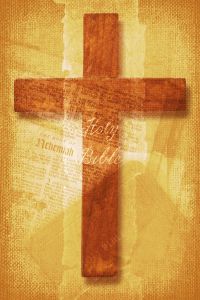 Scripture: Lectionary 311. Hebrews 5:1-10. Psalm 110:1.2.3.4. Mark 2:18-22
Scripture: Lectionary 311. Hebrews 5:1-10. Psalm 110:1.2.3.4. Mark 2:18-22
Did Jesus and his disciples fast as did those of John the Baptist and the
Pharisees? Is there a relationship of our passage from Mark to the first
two readings? Judge for yourself. It is clear the Pharisees are
confronting Jesus with the question, "Why are you not fasting as do the
disciples of John and as we do according to our religious practices?"
As a wandering preacher and one who had nowhere to lay his head or to have
time to beg, Jesus and his followers often fasted but not necessarily in
the ritual manner of many of the leaders and lawyers of the laws of the
Torah. He, like David, knew how to make exceptions to some religious
practices about food. His interpretation paved a different way for
itinerant preachers and teachers. This type of fasting is more demanding
and is felt in the hunger pangs that Jesus and his followers shared with
the crowds of poor, marginalized, and sick people.
We know that the Gospels reflect the pastoral and theological concerns of
the Evangelists who are the intelligent and gifted writers of these
incidents and words of Jesus. They adapt those words to the needs of their
people, their communities, their emerging churches. Mark uses this
incident to point out that there will come a time when the bridegroom,
Jesus, will be taken away through suffering and death upon the Cross. Then
there will be a reason and a memorial of Jesus when they mourn and do fast
while recalling what he went through for them through the Paschal Mysteries
of his suffering, death, and resurrection.
Mark keeps reminding us of the importance of the Cross in our lives. That
is why his Gospel is the Gospel of the Cross. It is part of this
theological message to us and to those who surrounded him. He is writing
to give the Christians their reason for fasting and remembering the last
days of Jesus. We then realize there is a relationship about Jesus and
what he goes through because he is a suffering servant messiah of the Lord.
The Psalm speaks of the Messiah as the chosen beloved Son of God. The
lesson from Hebrews shows the priesthood of the messiah Jesus and how he
was all too human in his limitations among his people.
The metaphor or simile of the wineskins being compared is important and has
been placed here with the story of fasting. It gives us the point of view
of the evangelist and also an insight into the practice of fasting. "The
real focus of the passage is not so much religious practice as Jesus the
messianic bridegroom; his public ministry is a special time in which the
old forms of religious practice were not appropriate." (New Jerome Biblical
Commentary, p.602.) Amen.
About the Author

Guest
We welcome guest contributors who graciously volunteer their writing for our readers. Please support our guest writers by visiting their sites, purchasing their work, and leaving comments to thank them for sharing their gifts here on CatholicMom.com. To inquire about serving as a guest contributor, contact editor@CatholicMom.com.


.png?width=1806&height=731&name=CatholicMom_hcfm_logo1_pos_871c_2728c%20(002).png)
Comments